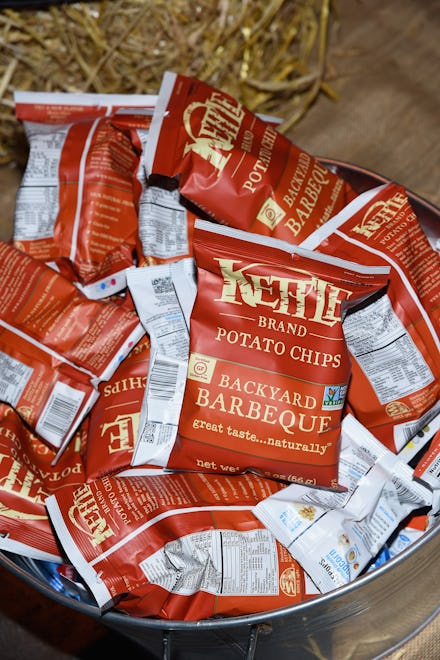Here's how the FDA makes sure your food doesn't kill you

If you're eating food in America, chances are the U.S. Food and Drug Administration had something to do with it.
This government agency tasked with protecting public health by evaluating pretty much every product we put in and on our bodies, may be even more influential than you think.
Presidential candidate Donald Trump is not an advocate of the FDA, calling for the elimination of the "food police" in a September 2016 speech to the Economic Club of Manhattan.
Think we don't need the FDA? Here are a few of the impacts the (controversial) agency has on what you eat.
1. The FDA regulates $1 trillion worth of products each year.
With the exception of meat, poultry and some egg products (the USDA takes care of that), the FDA regulates countless edible products including dietary supplements, bottled water, food additives, infant formulas and much more.
2. The FDA issues recalls of potentially contaminated or dangerous food products.
Those Multi-Grain Eggo Waffles that may have listeria? You can thank the FDA for alerting you to leggo of your Eggos before contracting a pretty nasty disease.
3. The FDA determines what information must legally be on food packaging.
Curious about the ingredients, additives, allergens and nutrition facts on your box of cereal? The FDA makes sure that necessary and accurate public health information is available on every mass-produced food product you purchase in the U.S.
4. The FDA regulates genetically engineered foods.
The ever-growing, ever confusing category of genetically engineered foods (or GMOs) is a mystery to many consumers and the FDA conducts research to ensure that GMOs you're eating are safe.
5. The FDA guides consumers on safe food handling procedures.
In attempts to help spread food-borne illness, the FDA serves as a resource for both cooks and eaters on how to properly treat food to ensure it is sanitary and safe to eat. The FDA also shares accessible data on safe cooking times and temperatures and how to safely store leftovers.
6. The FDA ensures our imported food is safe.
The FDA monitors international trade and works with the Environmental Protection Agency (EPA) as well as the U.S. Department of Agriculture (USDA) to rule what imported foods are safe to eat. The FDA also weighs in on trade agreements and international cooperation for imported food.
_____________________________________________
Read more:
7. The FDA is constantly researching to learn more about food safety and nutrition.
Rather than taste testing every food product that's on the market (sounds like a fun job though), the FDA runs lab tests and research projects to determine the future of food safety.
8. The FDA makes sure dietary supplements aren't scamming you.
The FDA prohibits manufacturers of dietary supplements from selling mislabeled and unsafe products, and takes action against those on the market which are misbranded. That two-day miracle diet pill? The FDA is here to make sure you know what you're buying, at least if you read the fine print.
9. The FDA determines which new edible products could be hazardous.
Such as in the case with powdered caffeine, the FDA looks at illness and accidents related to ingesting intriguing food products and gives consumer recommendations on how to eat these foods, if at all. Remember Four Loko? Credit the FDA for ensuring the fruity caffeinated malt beverage is just not what it used to be. You may also want to credit them with saving your life, if you were a Four Loko enthusiast.
10. The FDA regulates the gluten-free label.
Those with celiac disease and gluten avoiders can't be duped into thinking a product is gluten-free when it's not at all. The FDA has established a set of regulations for a food product to actually be labeled gluten-free and truly be free of gluten.
11. The FDA oversees non-edible aspects of safe food consumption.
Along with actual food products, the FDA also monitors kitchen appliances, like microwaves, to make sure they aren't giving off an unsafe level of radiation as well as livestock feed, to ensure that your meat isn't eating anything harmful to humans as it grows to become a steak.
12. The FDA protects Americans from foreign threats.
This one should hit home with "Food Police" hater Donald Trump, who may already have an apocalypse pantry in his penthouse, but still. The FDA's counterterrorism efforts in its Food Defense department are prepared with "tools and resources to help food facilities prevent, prepare for, respond to, and recover from acts of intentional adulteration of the food supply." If the worst happens and you have something to eat, it's because the FDA prepared for that.